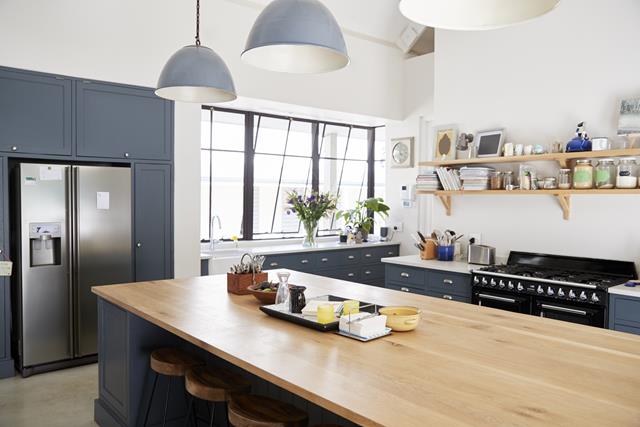Have you ever stepped into a beautifully designed home and wondered how someone managed to create such an amazing space? If you have a passion for creating harmonious living spaces and have a keen eye for aesthetics, then becoming a home interior decorator might be the perfect career choice for you. In this article, we will explore the world of home interior decoration and guide you through the steps to embark on your journey as a successful decorator.
Being a home interior decorator is not just about making a space aesthetically pleasing; it’s also about creating an environment that reflects the client’s personality and meets their functional needs. Whether it’s choosing the right color scheme, selecting furniture pieces, or arranging accessories, every decision made by a home interior decorator plays a crucial role in transforming a house into a beautiful and comfortable living space.
Apart from the satisfaction of transforming people’s homes, pursuing a career as a home interior decorator can also be financially rewarding. With an increasing demand for personalized and well-designed interiors in both residential and commercial spaces, there are numerous opportunities for decorators to excel in this field. Homeowners and businesses alike are willing to invest in professionals who can help them achieve their desired aesthetic goals.
In the following sections, we will delve deeper into understanding the responsibilities and skills required to succeed as a home interior decorator. We will also provide you with step-by-step guidance on how to start your journey as well as valuable tips on researching, educating yourself, gaining practical experience, building your portfolio, networking with industry professionals, and even launching your own successful freelance business.
So if you’re ready to turn your passion for design into a lucrative career, read on.
Understand the responsibilities and skills required to succeed as a Home Interior Decorator
To succeed as a home interior decorator, it is essential to understand the responsibilities and skills required for the job. This section will provide an overview of these key aspects, giving you a clear understanding of what it takes to thrive in this field.
Responsibilities:
As a home interior decorator, your primary responsibility is to transform spaces into aesthetically pleasing and functional environments. This involves working closely with clients to understand their tastes, preferences, and budgetary constraints. You will need to develop design concepts, create mood boards, source materials and furnishings, and oversee the entire execution process.
In addition to these creative tasks, you will also have to manage various logistical aspects. From coordinating with contractors and suppliers to adhering to project timelines and budgets, attention to detail and strong organizational skills are crucial for success in this role.
Skills:
Becoming a successful home interior decorator requires a combination of technical skills and personal qualities. Some key skills that are highly valuable in this profession include:
Creativity
Being able to think outside the box and come up with unique design ideas is at the core of being an excellent interior decorator. Your ability to envision spaces that reflect your clients’ personality while considering functional requirements is vital.
Communication
Strong interpersonal skills are necessary as you will be working closely with clients, architects, suppliers, and contractors. Effective communication helps ensure that everyone involved understands the vision for the project and can contribute their expertise seamlessly.
Attention to Detail
Paying meticulous attention to every aspect of the design process is crucial for achieving outstanding results. From selecting color schemes and fabrics to ensuring proper installation of decor elements, every decision must be carefully considered.
Project Management
The ability to handle multiple projects simultaneously while staying organized and meeting deadlines is imperative for success as a home interior decorator. Good project management skills will help you deliver exceptional results within the agreed-upon time frame.
By understanding the responsibilities and skills required, you can begin to assess your own strengths and weaknesses in relation to becoming a home interior decorator. This self-reflection allows you to identify areas that need improvement and provides a solid foundation for embarking on the journey towards this rewarding career path.
Step-by-step guide on how to start your journey as a Home Interior Decorator
To start your journey as a Home Interior Decorator, follow this step-by-step guide that will help you navigate the path to success in this lucrative career.
- Research and educate yourself: Begin by exploring the world of interior design and decoration. Familiarize yourself with different styles, trends, and materials used in home interiors. Learn about color theory, spatial arrangement, and the principles of design. You can find a wealth of information online through blogs, websites, and social media platforms dedicated to interior design.
- Develop your creative skills: Mastering the art of creating harmonious living spaces is crucial for a successful career as a Home Interior Decorator. Enhance your creativity by experimenting with various textures, patterns, and colors. Practice sketching room layouts and creating mood boards to visualize your ideas. Attend workshops or take courses on topics like furniture arrangement or lighting design to expand your repertoire of skills.
- Gain practical experience: Volunteering, internships, and entry-level jobs provide valuable hands-on experience in the field of interior decorating. Seek opportunities to assist established professionals or organizations involved in home interior projects. This practical experience will not only enhance your skills but also allow you to build a network within the industry. Consider reaching out to local home staging companies or furniture stores for potential volunteering or internship opportunities.
- Hone your knowledge: While practical experience is important, formal education or online courses can provide you with comprehensive knowledge and expertise in interior decorating techniques. Enroll in accredited programs or choose from online courses offered by reputable institutions that cover topics such as color psychology, space planning, furniture selection, and project management.
- Build a strong portfolio: Showcasing your work is essential for attracting potential clients and employers alike. Create an online portfolio that highlights your best projects and demonstrates your unique style and expertise in home interior decorating. Include high-quality photographs of before-and-after transformations along with detailed descriptions of each project. Consider creating a physical portfolio as well, especially if you plan to attend industry events or meet with potential clients in person.
By following this step-by-step guide, you can kickstart your career as a Home Interior Decorator and pave the way for a successful future in the industry. Remember to continuously educate yourself, develop your creative skills, gain practical experience, and build a strong portfolio to establish yourself as a trusted professional in the field.
Research and educate yourself
Immerse yourself in interior design and decoration trends
To become a successful home interior decorator, it is crucial to have a deep understanding of current trends and styles. Stay up-to-date with popular design magazines, blogs, and websites dedicated to interior design. Follow influential designers on social media platforms and attend industry trade shows and exhibitions. By immersing yourself in the world of interior design and decoration, you will develop a sense of what is currently fashionable and gain inspiration for your own unique designs.
Study the fundamentals of design principles
In addition to staying informed about the latest trends, it is equally important to have a strong foundation in design principles. Familiarize yourself with concepts such as color theory, balance, proportion, harmony, and scale. These principles form the backbone of any successful interior design project. Consider taking online courses or attending workshops that cover these fundamental aspects of design.
Learn about various decorating styles
Interior design encompasses a wide array of decorating styles ranging from traditional to contemporary, minimalist to eclectic. Take the time to explore different styles and understand their characteristics. Pay attention to how certain elements can be combined to create cohesion within a space. This knowledge will enable you to cater to diverse client preferences and provide personalized recommendations.
Understand the technical aspects
Being familiar with technological tools used in interior design can greatly enhance your efficiency and effectiveness as a home interior decorator. Invest time in learning computer-aided design (CAD) software that allows you to create 2D and 3D visualizations of your designs. Additionally, having knowledge about materials, furniture arrangements, lighting techniques, and spatial planning will help you accurately communicate your ideas to clients and execute projects seamlessly.
By investing time in research and education, aspiring home interior decorators can lay a solid foundation for their career. Understanding the latest trends, studying design principles, exploring various decorating styles, and honing technical skills will give decorators a competitive edge in the industry. This knowledge will not only enable decorators to create visually stunning spaces but also provide functional and personalized solutions for their clients’ homes.
Develop your creative skills
Developing creative skills is essential for mastering the art of creating harmonious living spaces as a home interior decorator. This section will provide insights into how individuals interested in pursuing a career in this field can enhance their creativity and create visually appealing designs.
To begin with, it is crucial to understand the fundamental principles of design, such as color theory and spatial planning. Familiarizing oneself with these principles will lay a solid foundation for creating harmonious living spaces. Additionally, keeping up with current trends in interior design through magazines, websites, and social media platforms can inspire fresh ideas and help decorators stay relevant.
Another way to develop creative skills is by exploring different styles and aesthetics. Experimenting with various design elements, materials, and textures can broaden one’s perspective and enable them to create unique and personalized spaces for clients. Visiting museums, art galleries, and attending design exhibitions can also provide inspiration from various artistic movements.
Moreover, practicing sketching and using digital tools like Adobe Photoshop or CAD software can be beneficial for visually expressing ideas and concepts to clients. Being proficient in these techniques allows designers to effectively communicate their vision while maintaining accuracy in proportions and spatial layout.
| Tips | Benefits |
|---|---|
| Experiment with different color combinations | Create visually appealing environments |
| Visit local art galleries | Gain inspiration from different artistic styles |
| Practice sketching room layouts | Effectively communicate design concepts |
Gain practical experience
Volunteering, internships, and entry-level jobs are essential for gaining practical experience as a home interior decorator. These opportunities provide hands-on experience in the field and help you build your portfolio, establish professional connections, and develop a strong foundation of knowledge and skills. Here is a step-by-step guide on how to gain practical experience in order to succeed as a home interior decorator.
- Volunteer for local organizations: Many non-profit organizations or community centers may be in need of assistance with their interior design projects. Volunteering your services can give you the chance to work on real projects while also giving back to your community. It’s an excellent way to practice your skills and learn from experienced professionals.
- Apply for internships: Internships offer valuable opportunities to work alongside established interior designers and decorators. Look for internships at design firms, retail stores, or hospitality establishments where you can gain hands-on experience in various aspects of the field. This will allow you to observe professionals in action, learn industry-specific techniques, and contribute to real-world design projects.
- Seek entry-level jobs or apprenticeships: Entry-level positions at design firms or home furnishing stores can provide invaluable work experience. These roles may involve tasks such as assisting with client consultations, creating design proposals, sourcing materials, and project management. By starting at the bottom, you’ll have the opportunity to learn from experienced colleagues while gradually taking on more responsibilities.
It is important to remember that gaining practical experience takes time and dedication. You may encounter challenges along the way but view them as learning opportunities that will strengthen your skills and knowledge base. Ultimately, these experiences will not only enhance your understanding of the profession but also make you more marketable as a home interior decorator.
Hone your knowledge
Enrolling in formal education or online courses can be a valuable step in honing your knowledge and skills as a home interior decorator. While it is possible to gain practical experience and develop your creativity through hands-on work, formal education offers a structured learning environment and the opportunity to acquire industry-specific knowledge.
Formal education programs in interior design and decoration are available at various institutions, including universities, colleges, and vocational schools. These programs typically offer courses that cover design principles, color theory, space planning, furniture arrangement, materials and textiles, lighting techniques, and other relevant topics. By enrolling in such programs, you can gain a comprehensive understanding of the field and learn from experienced professionals who can provide valuable insights and guidance.
In addition to traditional classroom-based programs, there are now many online courses available that cater specifically to aspiring home interior decorators. These online courses offer flexible learning options that allow you to study at your own pace from the comfort of your own home. They often include video tutorials, assignments or projects to practice what you’ve learned, and opportunities for interaction with instructors or fellow students through discussion forums or virtual classrooms.
By enrolling in formal education or online courses, you not only expand your knowledge base but also demonstrate your commitment to professional growth and development. This can be particularly beneficial when building your portfolio or seeking employment opportunities in the future. Additionally, some professional organizations or certification programs may require a certain level of education as a prerequisite for membership or accreditation.
| Benefits of Formal Education/Online Courses | Example Data |
|---|---|
| Acquiring industry-specific knowledge | Learning design principles, color theory, space planning techniques |
| Opportunity to learn from experienced professionals | Guidance and insights from instructors with real-world experience in interior design |
| Flexible learning options | Online courses allowing students to study at their own pace |
| Demonstrating commitment to professional growth | Showing dedication to continuous learning and development in the field |
Whether you choose a formal education program or opt for online courses, investing in your education will equip you with the necessary knowledge and skills to excel as a home interior decorator. It is important to research and select programs that align with your career goals and interests, as well as consider any prerequisites or certifications that may be required in your desired area of specialization.
By honing your knowledge through education, you can enhance your credibility as a professional and open up new opportunities in the industry.
Build a strong portfolio
Building a strong portfolio is essential for any aspiring home interior decorator. When potential clients or employers are looking for someone to hire, they want to see proof of your skills and experience. A well-curated portfolio can help you stand out from the competition and demonstrate your unique style and abilities.
To build a strong portfolio, start by documenting your best work. Take high-quality photographs of completed projects, making sure to capture different angles and details. If you are just starting out and don’t have many professional projects under your belt, consider creating mock-up designs or partnering with friends or family members to decorate their homes free of charge in exchange for being able to use the photos in your portfolio.
In addition to photographs, include any drawings, sketches, or floor plans that showcase your design process and creativity. This will give potential clients and employers insight into your thought process and ability to translate ideas into visual representations.
Another important element of a strong portfolio is including testimonials or references from previous clients or employers. This adds credibility to your work and demonstrates that you are reliable and capable of meeting client expectations.
Having an online presence is also crucial in today’s digital age. Create a professional website where you can showcase your portfolio along with additional information about yourself, such as your education, certifications, and any awards or recognition you have received.
| Portfolio Item | Description | Client/Project |
|---|---|---|
 | This living room design showcases my ability to create a cozy yet stylish space using warm colors and natural textures. | Client: Smith Residence |
 | In this project, I transformed a small apartment kitchen into a functional and visually appealing space with limited budget. | Project: Apartment Renovation |
Remember that your portfolio should be a reflection of your personal style and design aesthetic. It’s important to curate the content in your portfolio to showcase the type of work you want to attract. Regularly update and refine your portfolio as you gain more experience and complete new projects. With a strong portfolio in hand, you will be well-equipped to impress potential clients and employers with your skills and expertise as a home interior decorator.
Start networking
Connecting with professionals in the industry and attending industry events is essential for anyone looking to start a successful career as a home interior decorator. Networking allows you to meet like-minded individuals, learn from experienced professionals, and even open doors for new opportunities. Attending industry events such as trade shows, conferences, and workshops provides you with the opportunity to stay updated on the latest trends and techniques in home interior design.
Join Professional Organizations
One of the first steps in networking as a home interior decorator is to join professional organizations related to the field. These organizations provide valuable resources, networking opportunities, and support for aspiring decorators. Some reputable organizations include the International Interior Design Association (IIDA), American Society of Interior Designers (ASID), and National Kitchen & Bath Association (NKBA). By becoming a member of these organizations, you gain access to industry events, educational resources, job boards, and networking platforms.
Attend Trade Shows and Conferences
Attending trade shows and conferences specific to home interior decoration is another effective way to network within the industry. These events bring together professionals from all aspects of interior design, including suppliers, manufacturers, designers, decorators, architects, and more.
You can gain valuable knowledge from expert speakers during seminars or panel discussions and connect with potential clients or employers through exhibits or showcases. Additionally, participating in workshops or hands-on sessions allows you to enhance your skills while interacting with industry leaders.
Utilize Online Platforms
In today’s digital age, online platforms play a significant role in networking for any profession. Aspiring home interior decorators can leverage social media platforms such as LinkedIn, Instagram, or Facebook groups tailored specifically for interior design professionals.
These platforms enable you to connect with other decorators or designers worldwide, share your work/portfolio/portfolio projects/projects portfolio/portfolios/portfolio/project project ideas/ideas project project ideaweas/get inspirations/inspiration/advice, and collaborate on virtual projects. Additionally, online forums or discussion boards can be a great resource for connecting with professionals in the field and seeking advice or guidance.
By actively networking with professionals through joining organizations, attending industry events, and utilizing online platforms, you can build meaningful relationships, gain insights from industry experts, and increase your chances of finding job opportunities as a home interior decorator. Networking not only helps you stay updated with the latest trends but also opens doors to collaborations, mentorship, and potential clients. So start making connections today and grow your career as a home interior decorator.
Launch your own business
Launching your own business as a freelance home interior decorator can be an exciting and rewarding endeavor. It allows you to have creative freedom, work with different clients, and showcase your unique style and skills. However, starting your own business requires careful planning and preparation. Here are some tips and advice to help you become a successful freelance home interior decorator:
- Define your niche: Determine your specific area of expertise within home interior decoration. This could be specializing in a particular room or designing for a specific demographic, such as families or retirees. By defining your niche, you can market yourself more effectively and stand out from the competition.
- Create a business plan: Develop a comprehensive business plan that outlines your goals, target market, pricing structure, marketing strategies, and financial projections. A well-thought-out business plan will serve as a roadmap for your success and help you stay focused on achieving your objectives.
- Establish your brand: Your brand is what sets you apart from other freelancers in the industry. Create a compelling brand identity that reflects your style and values. This includes designing a professional logo, developing a cohesive visual aesthetic for your website and social media profiles, and crafting a strong elevator pitch that clearly communicates what makes you unique.
- Build an online presence: In today’s digital age, having a strong online presence is crucial for any freelancer. Create an engaging website that showcases your portfolio of work, highlights client testimonials, and provides information about the services you offer. Additionally, utilize social media platforms such as Instagram and Pinterest to share visually appealing content related to home interior decoration.
- Network with professionals: Networking is key to building relationships in the industry and expanding your client base. Attend industry events such as trade shows or conferences where you can connect with potential clients and collaborate with other professionals in the field.
- Provide exceptional customer service: Word-of-mouth recommendations are vital for any freelance business owner. Make it a priority to exceed your clients’ expectations by delivering high-quality work and providing outstanding customer service. This will not only help you retain existing clients but also attract new ones through positive referrals.
By following these tips and advice, you can successfully launch your own freelance home interior decoration business. Remember to be patient, persistent, and passionate about your craft. With dedication and hard work, you can turn your love for creating beautiful living spaces into a profitable career.
Conclusion
Becoming a home interior decorator can be a fulfilling and lucrative career choice for those who have a passion for design and creating beautiful living spaces. In this article, we have explored the responsibilities and skills required to succeed in this field and provided a step-by-step guide on how to start your journey as a home interior decorator.
Firstly, we emphasized the importance of research and education in order to fully understand the world of interior design and decoration. By immersing yourself in the industry, attending workshops or online courses, you can gain valuable knowledge that will help you excel in your career. Developing your creative skills is also crucial to master the art of creating harmonious living spaces. Experiment with different color palettes, textures, and layouts to enhance your eye for design.
Practical experience is another essential aspect of becoming a successful home interior decorator. Volunteering or interning with experienced professionals not only gives you real-world exposure but also allows you to build connections within the industry. Additionally, enrolling in formal education or online courses can help you refine your skills and stay updated with current trends.
Building a strong portfolio showcasing your work is essential when attracting potential clients or employers. This portfolio should highlight your unique style and demonstrate your ability to transform spaces into visually appealing environments that meet clients’ needs.
Finally, networking plays a vital role in expanding your professional circles and gaining opportunities within the industry. Attend industry events, join professional organizations, and connect with other professionals who can provide guidance or even collaborations.
With determination, hard work, and dedication to honing your craft, you can launch your own business as a freelance home interior decorator. Starting small and gradually building up clientele is an effective approach.
In conclusion, starting a career as a home interior decorator requires passion for design paired with knowledge and practical experience. With the steps outlined in this article as well as motivation fueled by creativity, there are countless possibilities waiting for those willing to embark on this exciting and rewarding journey.
Frequently Asked Questions
What qualifications do you need to be a decorator?
To be a decorator, there are no set qualifications that are required by law. However, having a formal education or training in interior design or decorating can greatly benefit your career prospects. Many decorators possess a degree in interior design or have completed specialized courses in the field.
These programs provide individuals with the skills and knowledge needed to understand principles of design, space planning, color theory, and more. Additionally, gaining experience through internships or apprenticeships can also enhance your qualifications as a decorator.
Does interior decorating make money?
Yes, interior decorating has the potential to be a profitable career. The earning potential largely depends on various factors such as your level of expertise, reputation, location, and types of clients you work with. Many skilled decorators earn a good income by charging hourly rates or by taking on large projects such as residential renovations or commercial spaces.
Some decorators also generate revenue through sourcing and selling furnishings or through partnerships with suppliers and vendors. Building strong relationships with clients and delivering exceptional results can lead to repeat business and referrals, further increasing income opportunities.
Is an interior decorator certificate worth it?
Obtaining an interior decorator certificate can be worthwhile for those seeking formal recognition and credibility within the industry. While it is not mandatory to have a certificate to work as an interior decorator, obtaining one can demonstrate to clients and potential employers that you have acquired the necessary knowledge and skills in this field.
A certificate program typically covers essential topics such as color schemes, furniture arrangement, textiles, lighting design, etc., which can enhance your understanding of the profession. Moreover, some clients may specifically look for decorators who hold certifications as it provides them assurance about the decorator’s competence and professionalism.

Hello, lovely readers! I’m Sheila Collins, and I’m delighted to be your trusted guide on this exciting journey of home improvement, design, and lifestyle. As the founder and editor-in-chief of Home Guide Blog, I’m passionate about all things related to homes, and I’m here to share my knowledge, experiences, and insights with you.





